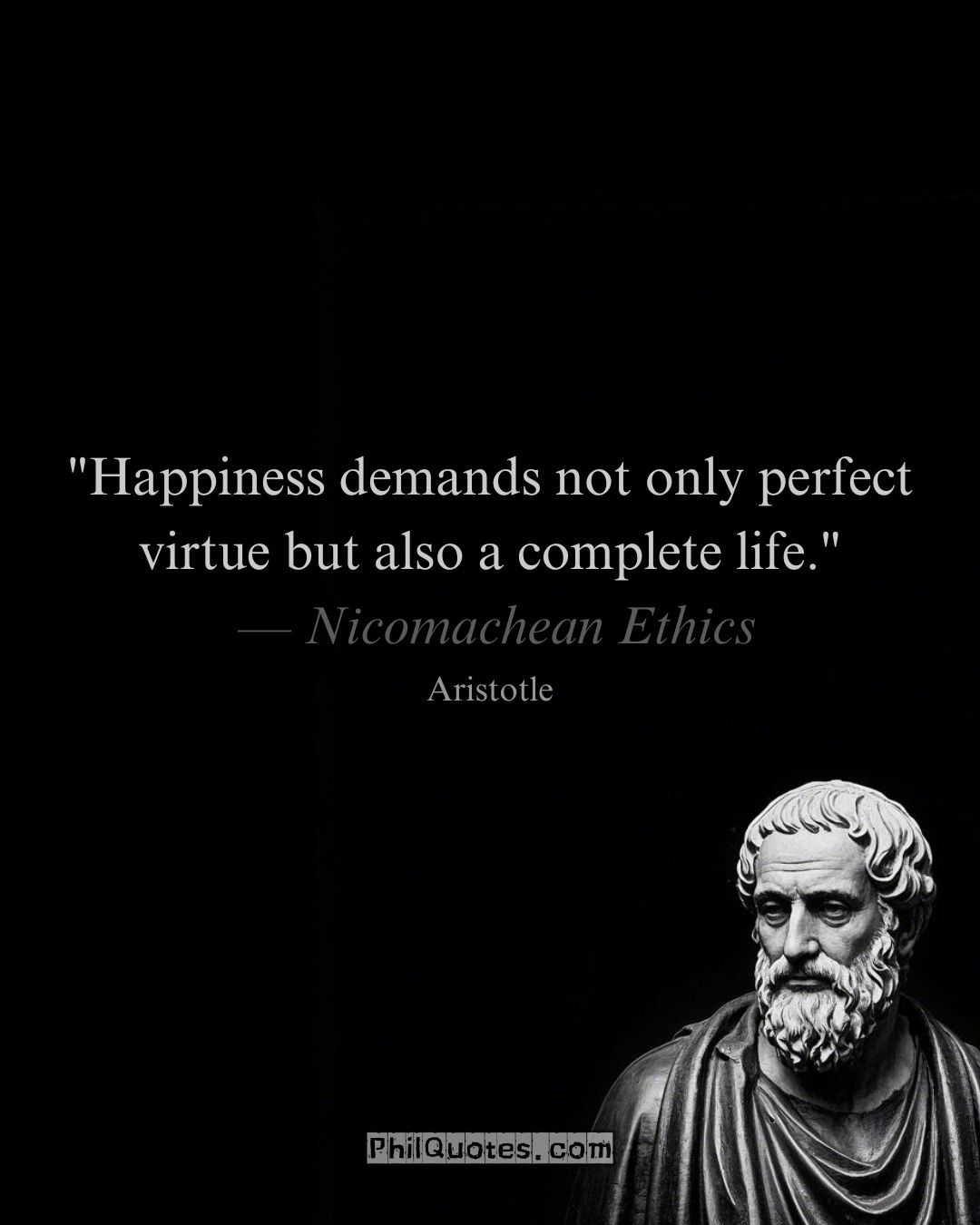
“Happiness demands not only perfect virtue but also a complete life.”
— Aristotle, Nicomachean Ethics, Book I, Chapter 7
Simple Explanation:
Aristotle argues that true happiness (eudaimonia) requires two pillars:
- Perfect virtue — consistently choosing courage, justice, and wisdom over decades.
- Complete life — surviving life’s storms long enough to see your choices bear fruit, like an oak tree needing seasons to reveal its full majesty.
Real-World Connection:
① Lifelong Learning →
You study AI at 20 → pioneer tech ethics at 40 (virtue in practice) → advise climate solutions at 60 (cross-generational impact) → embody happiness as cumulative legacy.
② Entrepreneurial Journey →
A founder builds a green startup → survives 3 market crashes (resilience) → scales globally with fair wages (justice) → exits to mentor youth at 55 (virtue meets temporal completeness).
③ The Hidden Equation →
A “complete life” isn’t mere longevity — it’s intergenerational ripples:
- Planting olive trees you’ll never sit under (virtue beyond self)
- Teaching grandchildren philosophy (wisdom’s temporal bridge)
- Forgiving old rivals (courage to heal across decades)